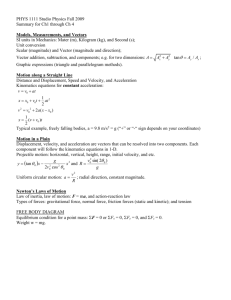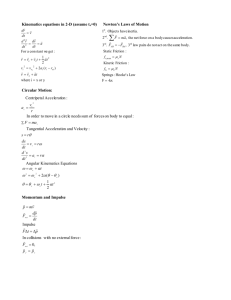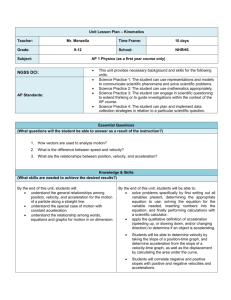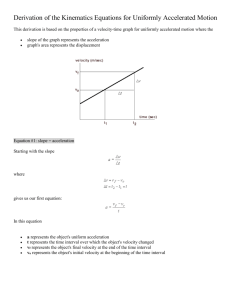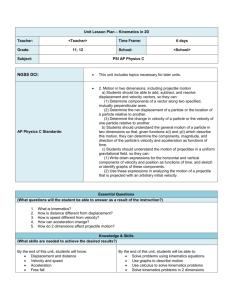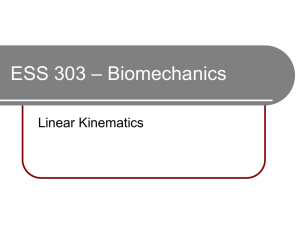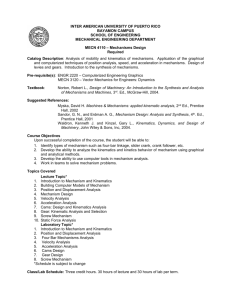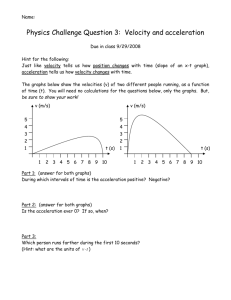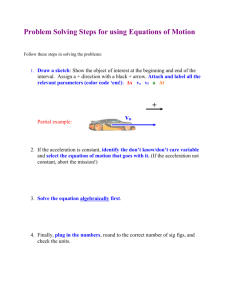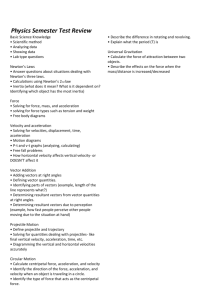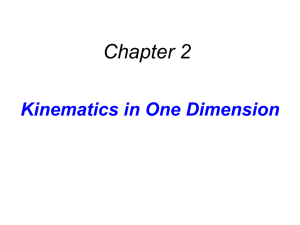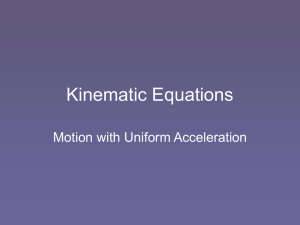Unit Lesson Plan * Atomic Structure
advertisement
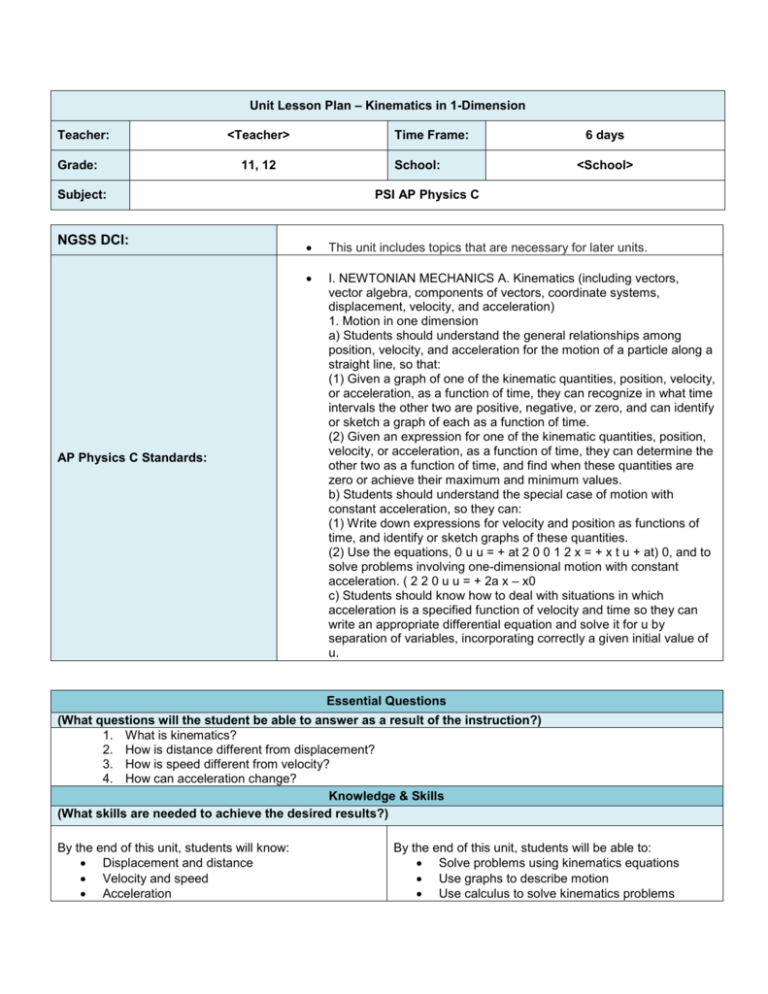
Unit Lesson Plan – Kinematics in 1-Dimension Teacher: Grade: <Teacher> Time Frame: 11, 12 School: Subject: NGSS DCI: AP Physics C Standards: 6 days <School> PSI AP Physics C This unit includes topics that are necessary for later units. I. NEWTONIAN MECHANICS A. Kinematics (including vectors, vector algebra, components of vectors, coordinate systems, displacement, velocity, and acceleration) 1. Motion in one dimension a) Students should understand the general relationships among position, velocity, and acceleration for the motion of a particle along a straight line, so that: (1) Given a graph of one of the kinematic quantities, position, velocity, or acceleration, as a function of time, they can recognize in what time intervals the other two are positive, negative, or zero, and can identify or sketch a graph of each as a function of time. (2) Given an expression for one of the kinematic quantities, position, velocity, or acceleration, as a function of time, they can determine the other two as a function of time, and find when these quantities are zero or achieve their maximum and minimum values. b) Students should understand the special case of motion with constant acceleration, so they can: (1) Write down expressions for velocity and position as functions of time, and identify or sketch graphs of these quantities. (2) Use the equations, 0 u u = + at 2 0 0 1 2 x = + x t u + at) 0, and to solve problems involving one-dimensional motion with constant acceleration. ( 2 2 0 u u = + 2a x – x0 c) Students should know how to deal with situations in which acceleration is a specified function of velocity and time so they can write an appropriate differential equation and solve it for u by separation of variables, incorporating correctly a given initial value of u. Essential Questions (What questions will the student be able to answer as a result of the instruction?) 1. What is kinematics? 2. How is distance different from displacement? 3. How is speed different from velocity? 4. How can acceleration change? Knowledge & Skills (What skills are needed to achieve the desired results?) By the end of this unit, students will know: Displacement and distance Velocity and speed Acceleration By the end of this unit, students will be able to: Solve problems using kinematics equations Use graphs to describe motion Use calculus to solve kinematics problems Note that this exact Smart Notebook presentation has not been used in the classroom, although all of the material has. The pacing below is approximate based on a 40-45 minute class period. Feel free to adjust as necessary and please provide your feedback! Free fall Kinematics equations Velocity and position by integration Graph interpretation Assessment (What is acceptable evidence to show desired results (rubrics, exam, etc.)? Attach Copy During the Smart Notebook lesson designed to introduce concepts, students will be continually questioned on these concepts using a combination of class work/homework questions and the SMART Response system. Classwork and Homework questions will be discussed as a class and misconceptions will be addressed by the teacher prior to the formal evaluations listed below. Kinematics 1-D Test Other assessments on the NJCTL website are optional and can be used as needed. (What is the sequence of activities, learning experiences, etc, that will lead to desired results (the plan)? Topic Classwork Homework** 1 What is Kinematics? Presentation slides 1-52 MC 1-20 & FR 1, 2, 3 2 Acceleration Presentation slides 53-84 MC 21-30 & FR 4, 5, 6, 7 3 Velocity by Integration Presentation slides 85-113 MC 31-40 & FR 8, 9, 10, 11 4 Review MC Review FR 12,13, 14, 15 5 Review FR Review Study for test 6 Kinematics 1D Test Test Review next unit Day * It may not be possible to complete labs in the order stated due to lab schedules. Other labs on the NJCTL website are option and can be used as needed. **HW Problems are currently not scaffolded from least to most difficult, but are instead listed in order of topic. Teacher should pay special attention at the end of each class period when assigning HW so that only problems related to the topic that was taught are being assigned.
